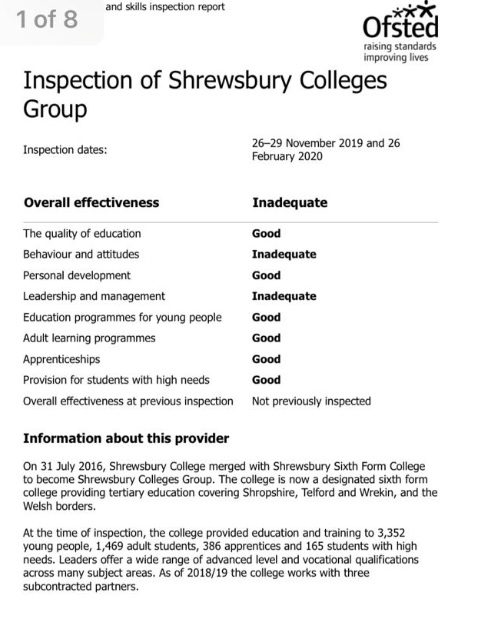One of the ‘big four’ accounting firms that trains nearly 1,000 civil service apprentices has been slammed as ‘inadequate’ by Ofsted.
KPMG Limited Liability Partnership (LLP) has now been banned from the apprenticeships market as a result of a damning grade four report published today.
A catalogues of issues, including a lack of unbiased careers advice and poor support for high needs learners with dyslexia, were found for 933 apprentices who all work in government departments such as the Cabinet Office and Treasury.
They study a range of apprenticeship standards like the level 4 policy officer, cyber security technologist and professional accounting / taxation technician.
“Too few” of them “complete the programme, and many leave early”, inspectors said.
“Many” report that they feel “demotivated by the lack of support and very slow response to their requests for information and guidance”.
Apprentices’ curriculum is “not well structured” and “does not support them to develop quickly the knowledge and skills they require”, resulting in the “vast majority” being left behind.
Ofsted found that trainers are “not sure how well apprentices are doing, when they are going to achieve their apprenticeship, and what they need to do to achieve it”.
KPMG works with two subcontractors, QA Limited and Bridgwater & Taunton College, which account for 58 per cent and 8 per cent of apprentices respectively.
Ofsted criticised these partners as they “do not develop consistently well the necessary knowledge and skills”. Leaders at KPMG have now taken over nearly all recruitment directly from the subcontractors as a result.
The watchdog’s report continues: “Apprentices do not consistently receive the hours away from work that they need to study or attend classes.”
Nor do they receive unbiased careers advice. When it does take place, it focuses on the career route within the civil service and does not guide apprentices to understand what is available to them outside of their current employer.
Ofsted also found that facilitators at KPMG mostly fail to order and organise learning “logically” to make sure apprentices build on their skills incrementally.
For example, apprentices who needed to complete the risk element of project management, to be able to complete work activities, had to wait six months until this subject was being taught as part of the group session.
Leaders have “not responded quickly enough to support apprentices who have fallen behind or who have difficulties with their learning”.
For example, an apprentice with dyslexia “did not receive the relevant level of support to help them overcome their difficulties with writing and sentence construction”.
Leaders were praised for working “closely” with managers of civil service departments to create “an appropriate apprenticeship” curriculum to match their specific needs, for example to help apprentices to acquire the skills to contribute to the development of new policy and build up their financial literacy in the Treasury”.
But while governors know well the areas for improvement, they have “not acted quickly enough to ensure leaders put in place the necessary remedial action so that apprentices make the progress that they should”.
KPMG also had a further 134 apprentices who were on degree apprenticeships but were not in scope for this inspection as the higher levels are the responsibility of the Office for Students.
All training providers that are judged ‘inadequate’ by Ofsted typically have their funding contracts with the Education and Skills Funding Agency terminated.
A Department for Education spokesperson said: “We are aware that KPMG’s apprenticeship provision has been judged inadequate by Ofsted and in line with our usual policy, they will be removed from the Register of Apprenticeship Training Providers.
“Our priority now is to minimise disruption to apprentices, government departments and employers. We are working closely with employers, to ensure all existing apprentices can continue to access high quality training and complete their apprenticeship.”
They added that it will be each government department’s responsibility to decide whether apprentices will complete their apprenticeships at KPMG or move to a different provider.
A KPMG UK spokesperson said: “We take both the quality and experience of the apprentices on this scheme very seriously and have a robust quality improvement plan in place to rapidly address the issues identified in this report.”
A spokesperson for Bridgwater & Taunton College, which is rated ‘good’ by Ofsted itself, added: “We have reviewed the Ofsted report on KPMG apprenticeship delivery and, while disappointed in Ofsted’s findings, we welcome the identification of specific improvements that will benefit apprentices and employers.
“We are committed to ensuring that learner outcomes meet and exceed expectations and we are working closely with KPMG to implement plans that respond to points raised in this report.”
QA Limited has been approached for comment.

